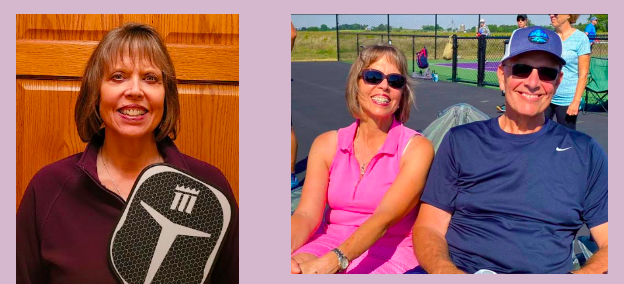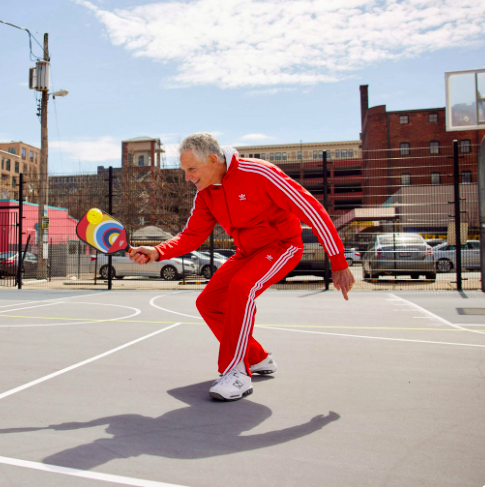Comaraderie! Fun! Physical Activity! Mindfulness!
All of these are involved in pickleball as well as have a positive influence on our mental health!
By Dr. Lori Settersten, PhD, APNP, PMHNP-BC, FNP-BC, WHNP-BC

Mental health includes our “emotional, psychological, and social well-being” (U.S. Department of Health & Human Services [DHHS], 2022). Pickleball can have a positive impact on our mental health.
Our emotional and psychological well-being has been shown to be improved by physical activity, which increases endorphins, the feel-good hormones, in the body. Also, physical activity has been shown to help treat depression and anxiety.
When people play pickleball, they often socialize with others who are playing; social support has been found to improve one’s mental health.
While playing pickleball, our minds are often fully immersed in the game and our next moves, thus we are engaged in mindfulness, which has been found to improve one’s mental health.
Pickleball may help our brain functioning as we are continually thinking about different strategies while playing. In addition, keeping track of the score challenges our memory.
Furthermore, playing pickleball is exhilarating! So much so, that players feel compelled to return for more! Players become passionate about the game!
–All of these are positive aspects of pickleball on mental health.
A negative aspect could be if someone gets down on themselves for missing a shot or not playing as well as one would like; keep reminding yourself that pickleball is for fun!
An avid instructor of pickleball in our area, Marko Grgic, recommends pickleball players watch pickleball professionals online, such as Ben Johns, and notice how they stay calm, cool, and collected no matter what; They let mistakes roll off their backs and continue on with the game, maintaining their focus.
Marko also recommends that players don’t dwell too much on their score, but focus more on watching the ball intently and making solid contact in serves and strokes. Remember to have fun and be social!
In addition, according to the DHHS (2022), “ways to maintain positive mental health include:
Getting professional help if you need it
Connecting with others
Staying positive
Getting physically active
Helping others
Getting enough sleep
Developing coping skills” (DHHS, 2022)
For those of you who are interested in a few specifics about some of the research that has been conducted regarding pickleball and mental health:
One study of pickleball players at a world senior games tournament in Utah found that pickleball had a positive impact on eudaimonic well-being, which includes self-realization, personal growth, and meaning in one’s life (Ryu, Heo, & Lee, 2022).
In another study of older adults competing in pickleball tournaments, engaging in “serious leisure” activity (in this case, pickleball) was found to be associated with lower levels of depression (Heo, Ryu, Yang, & Kim, 2018).
In a study of the impact of a six-week pickleball intervention with sedentary, rural, older adults, findings included a small improvement in cognitive performance, including memory (Wray, Ward, Nelson, Sulzer, Dakin, et al., 2021).
Stay tuned for more research examining the mental health benefits of pickleball!
Dr. Lori Settersten, PhD, APNP, PMHNP-BC, FNP-BC, WHNP-BCLori is a recently retired Psychiatric-Mental Health Nurse Practitioner and an enthusiastic beginner pickleball player! Watch for her on the courts in Oconomowoc or walking her cart on the Kettle Moraine golf courses!





Leave a comment